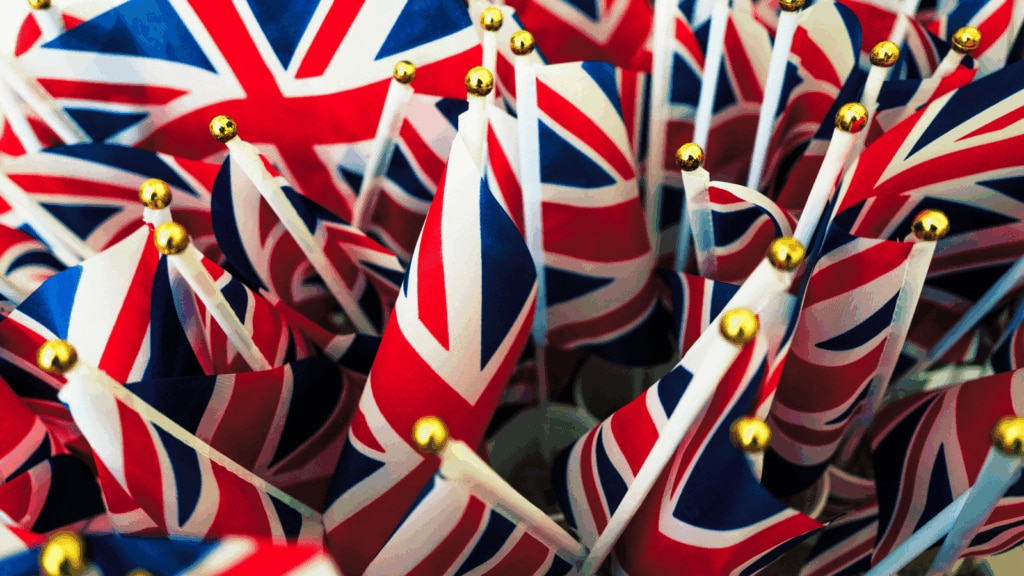Usman Dean, United Kingdom

Across continents, protests and counter-protests have become a familiar sight, often fuelled by populist rhetoric and amplified by social media. The United Kingdom has not been immune to this trend. We have seen movements like “Raise the Flag” attempt to capture a sense of patriotism, while at the same time creating deepening divisions between communities.
It is in this atmosphere that on 13 September 2025, an estimated 100,000-150,000 protestors gathered in central London as Tommy Robinson and his supporters staged what they called a “freedom of speech festival”. Streets were blocked, bottles were thrown at police, and litter and broken glass left behind in the aftermath. Elon Musk himself endorsed and spoke at the event, adding weight to the cause. Among the names invoked by the protestors was that of American commentator Charlie Kirk, who was recently killed.
Counter-protestors also mobilised, carrying placards and chanting in support of diversity and inclusion. Social media was flooded with both sides of the debate, reflecting the deep divisions that have become characteristic of Britain’s political landscape. For now, these far-right sentiments seem to be part of a minority of the population, with many people, including influential politicians such as the Prime Minister himself declaring that there is no place in Britain for such division.
A British Muslims perspective
Against this backdrop, questions about freedom of expression, patriotism and the contribution of Muslims and immigrants to this country have been raised.
Being a British Muslim, it can be hard navigating this landscape, with accusations levelled at Muslims of being disloyal and the idea that immigrants and minorities in general cannot truly belong to Britain. Yet Islam’s teachings are clear on this matter.
The Quran commands Muslims to remain faithful not only to Allah and the Prophet Muhammadsa, but also to the authority they live under:
“O ye who believe! obey Allah, and obey [His] Messenger and those who are in authority among you. (Holy Quran, Ch.4: V.60).”
Love and loyalty for one’s country are not conditional; they are part of faith itself. The verse above highlights the loyalty a Muslim must show to the authority of their homeland. These words are a clear reminder that faith and patriotism are not in tension. Rather, they are inseparably linked. Furthermore, the Prophet Muhammadsa said that love for one’s nation is a part of faith.
This statement is not merely a reminder of sentiment, but a directive to serve societies, protect homelands and embody a form of citizenship that is both faithful and patriotic.
The Ahmadiyya Muslim Community has embodied the principle of loyalty to one’s nation. Hazrat Mirza Masroor Ahmadaa, Khalifatul Masih V, has also consistently emphasised this point. In an address at the military headquarters in Koblenz, Germany, in 2012, Huzooraa stated:
“To truly love God and Islam requires a person to love his nation. It is quite clear, therefore, that there can be no conflict of interest between a person’s love for God, and love for his country. As love for one’s country has been made a part of Islam, it is quite clear that a Muslim must remain completely loyal to his homeland.”
This commitment is highlighted in the pledge of Majlis Khuddam-ul-Ahmadiyya, in which Ahmadi youth affirm: “I shall always be ready to sacrifice my life, wealth, time and honour for the sake of my faith, country and nation.”
When Ahmadi youth across the world stand and recite this pledge, they are not repeating empty words but expressing a lifelong commitment to service; demonstrated through countless acts of volunteering and civic participation. This pledge is also reflected symbolically at the annual Khuddam ijtema (gathering), where the Union Jack is raised annually. Unlike Robinson’s “Raise the Flag” campaign, which seeks to create division, this act embodies unity and the true Islamic spirit of patriotism.
Contributions of Muslims & minorities
In reality, Britain’s prosperity owes much to the contribution of Muslims and immigrants. The National Health Service is perhaps the clearest example: 47.5% of doctors and 33.6% of nurses come from minority backgrounds. Far from being a burden, immigrants as a whole contribute billions more in taxes than they take in benefits.
From education to technology, from community support to entrepreneurship, immigrants and Muslims are deeply woven into the fabric of British life. In addition, in 2023 alone, Ahmadi youth provided 1.8 million meals to those most vulnerable in our society, donated over 13,000 kg of food to foodbanks, and raised £208,000 for British charities. This is true patriotism in action, living out Islamic principles through service, sacrifice, and compassion for one’s fellow citizens. The rhetoric of “remigration” ignores this reality, seeking to reduce human beings to political slogans.
For Muslims, the answer is found in the timeless guidance of Islam: to speak with wisdom, to serve society with sincerity, and to show unwavering loyalty to the country we call home. In living these principles, we not only refute false accusations but also demonstrate that true faith is inseparable from true patriotism.

